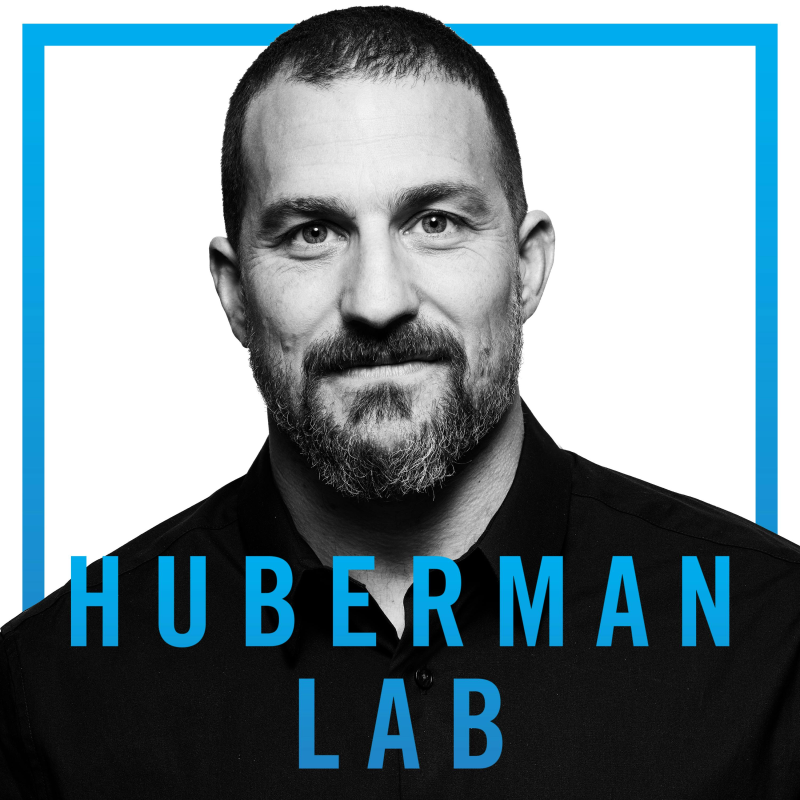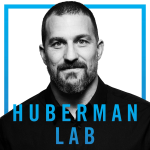
How the Brain Works, Curing Blindness & How to Navigate a Career Path | Dr. E.J. Chichilnisky

O epizodě podcastu
In this episode, my guest is Dr. E.J. Chichilnisky, Ph.D., professor of neurosurgery and ophthalmology at Stanford University, studying how we see and use that information to build artificial eyes to restore vision to people who are blind. We discuss how understanding the retina (the light-sensing brain tissue that lines the back of our eyes) is critical to knowing how our brain works more generally. We discuss brain augmentation with biologically informed prostheses, robotics, and AI and what this means for medicine and humanity. We also discuss E.J.’s unique journey into neuroscience and how changing fields multiple times, combined with some wandering, taught him how to guide his decision-making in all realms of life. This episode ought to be of interest to anyone interested in learning how the brain works, from a world-class neuroscientist to the future of brain therapeutics and to those seeking inspiration and tools for navigating their own professional and life journey.
For show notes, including referenced articles and additional resources, please visit hubermanlab.com.
Thank you to our sponsors
AG1: https://drinkag1.com/huberman
Eight Sleep: https://eightsleep.com/huberman
ROKA: https://roka.com/huberman
BetterHelp: https://betterhelp.com/huberman
InsideTracker: https://insidetracker.com/huberman
Momentous: https://livemomentous.com/huberman
Timestamps
(00:00:00) Dr. E.J. Chichilnisky
(00:02:31) Sponsors: Eight Sleep, ROKA & BetterHelp
(00:06:06) Vision & Brain; Retina
(00:11:23) Retina & Visual Processing
(00:18:37) Vision in Humans & Other Animals, Color
(00:23:01) Studying the Human Retina
(00:29:48) Sponsor: AG1
(00:31:16) Cell Types
(00:36:00) Determining Cell Function in Retina
(00:43:39) Retinal Cell Types & Stimuli
(00:49:27) Retinal Prostheses, Implants
(01:00:25) Artificial Retina, Augmenting Vision
(01:06:05) Sponsor: InsideTracker
(01:07:12) Neuroengineering, Neuroaugmentation & Specificity
(01:17:01) Building a Smart Device, AI
(01:20:02) Neural Prosthesis, Paralysis; Specificity
(01:25:21) Neurodegeneration; Adult Neuroplasticity; Implant Specificity
(01:34:00) Career Journey, Music & Dance, Neuroscience
(01:42:55) Self-Understanding, Coffee; Self-Love, Mediation & Yoga
(01:47:50) Body Signals & Decisions; Beauty
(01:57:49) Zero-Cost Support, Spotify & Apple Reviews, Sponsors, YouTube Feedback, Momentous, Social Media, Neural Network Newsletter
Disclaimer
In this episode, my guest is Dr. E.J. Chichilnisky, Ph.D., a professor of neurosurgery and ophthalmology at Stanford University. He studies how we see and uses that information to build artificial eyes that restore vision to the blind.
We discuss how understanding the retina (the light-sensing brain tissue that lines the back of our eyes) is critical to knowing how our brain works more generally.
We discuss brain augmentation with biologically informed prostheses, robotics, and AI and what this means for medicine and humanity.
We also discuss E.J.’s unique journey into neuroscience and how changing fields multiple times, combined with some wandering, taught him how to guide his decision-making in all realms of life.
This episode ought to be of interest to anyone interested in learning how the brain works from a world-class neuroscientist, those interested in the future of brain therapeutics and people seeking inspiration and tools for navigating their own professional and life journey.
For show notes, including referenced articles and additional resources, please visit hubermanlab.com.
Thank you to our sponsors
AG1: https://athleticgreens.com/huberman
LMNT: https://drinklmnt.com/hubermanlab
Waking Up: https://wakingup.com/huberman
Timestamps
(00:00:00) Dr. E.J. Chichilnisky
(00:02:47) Sponsors: LMNT & Waking Up
(00:06:06) Vision & Brain; Retina
(00:11:23) Retina & Visual Processing
(00:18:37) Vision in Humans & Other Animals, Color
(00:23:01) Studying the Human Retina
(00:26:33) Sponsor: AG1
(00:31:16) Cell Types
(00:36:00) Determining Cell Function in Retina
(00:43:39) Retinal Cell Types & Stimuli
(00:49:27) Retinal Prostheses, Implants
(01:00:25) Artificial Retina, Augmenting Vision
(01:07:12) Neuroengineering, Neuroaugmentation & Specificity
(01:17:01) Building a Smart Device, AI
(01:20:02) Neural Prosthesis, Paralysis; Specificity
(01:25:21) Neurodegeneration; Adult Neuroplasticity; Implant Specificity
(01:34:00) Career Journey, Music & Dance, Neuroscience
(01:42:55) Self-Understanding, Coffee; Self-Love, Meditation & Yoga
(01:47:50) Body Signals & Decisions; Beauty
(01:57:49) Zero-Cost Support, Spotify & Apple Reviews, Sponsors, YouTube Feedback, Momentous, Social Media, Neural Network Newsletter
Disclaimer
Learn more about your ad choices. Visit megaphone.fm/adchoices
Popis podcastu
The Huberman Lab podcast is hosted by Andrew Huberman, Ph.D., a neuroscientist and tenured professor in the department of neurobiology, and by courtesy, psychiatry and behavioral sciences at Stanford School of Medicine. The podcast discusses neuroscience and science-based tools, including how our brain and its connections with the organs of our body control our perceptions, our behaviors, and our health, as well as existing and emerging tools for measuring and changing how our nervous system works.
Huberman has made numerous significant contributions to the fields of brain development, brain function, and neural plasticity, which is the ability of our nervous system to rewire and learn new behaviors, skills, and cognitive functioning. He is a McKnight Foundation and Pew Foundation Fellow and was awarded the Cogan Award, given to the scientist making the most significant discoveries in the study of vision, in 2017.
Work from the Huberman Laboratory at Stanford School of Medicine has been published in top journals, including Nature, Science, and Cell, and has been featured in TIME, BBC, Scientific American, Discover, and other top media outlets.
In 2021, Dr. Huberman launched the Huberman Lab podcast. The podcast is frequently ranked in the top 10 of all podcasts globally and is often ranked #1 in the categories of Science, Education, and Health & Fitness.